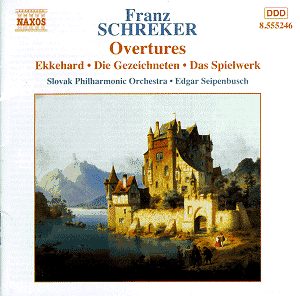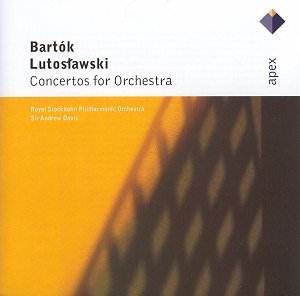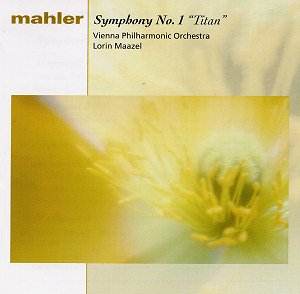 Composer: Franz Schreker
Composer: Franz Schreker
Works: Ekkehard Overture, Fantastic Overture, Interlude from Der Schatzgräber, Prelude from Die Gezeichneten, Prelude from Das Spielwerk
Performers: Slovak Philharmonic Orchestra/Edgar Seipenbusch
Recording: 16 Nov 1985 (Ekkehard & Fantastic Overtures), 24 July 1987 (remaining items), Concert Hall of the Slovak Philharmonic, Bratislava
Label: NAXOS 8.555246 [54.05]
Franz Schreker, a composer whose career flourished in the shadow of contemporaries like Strauss, Schoenberg, and Mahler, has often been relegated to the periphery of the late-Romantic canon. His lush orchestrations and dramatic flair resonate with an emotional depth that deserves greater recognition. This recording of selected orchestral works, including the early Ekkehard Overture and the more mature Prelude to Die Gezeichneten, offers listeners an opportunity to appreciate Schreker’s unique voice, even if the performances themselves leave something to be desired.
The opening pieces, the Ekkehard and Fantastic Overtures, showcase Schreker’s budding talent yet reveal the limitations of his early style. While both works display a penchant for sweeping melodic lines and rich chromaticism, they lack the incisive edge characteristic of his later compositions. The orchestration, while lush, feels somewhat conventional and does not fully exploit the dramatic potential inherent in Schreker’s idiom. This trend of melodrama without sufficient development persists through the program, creating an overall impression of unevenness.
Edgar Seipenbusch’s conducting offers a committed interpretation, yet the performances often feel flat, lacking the necessary intensity to bring Schreker’s vivid musical language to life. The Slovak Philharmonic Orchestra plays competently, but the execution does not elevate the material. For instance, the Prelude to Die Gezeichneten, which deals with themes of tragedy and unfulfilled love, requires a more pronounced emotional arc that is not fully realized here. The shimmering string tremolandi, meant to evoke a sense of longing, come across as merely decorative rather than emotionally gripping.
Sound quality is a critical component in realizing the full impact of orchestral music, and unfortunately, this recording suffers from a somewhat dull and opaque sonic palette. The orchestral blend is adequate but lacks the tonal lustre that can bring Schreker’s complex textures to life. Compared to other recordings of his works, such as those conducted by more contemporary maestros like Ingo Metzmacher, whose interpretations highlight the dramatic contrasts in Schreker’s music, this release feels muted. The engineering does not capture the vibrant colors of the orchestra, which diminishes the overall impact of the climactic passages.
Schreker’s music, with its richly woven textures and emotional depth, deserves a more compelling representation than what this disc provides. While there are moments that hint at the composer’s considerable talent, the lack of a robust interpretive vision and the constraints of the recording quality ultimately hinder the music’s potential to resonate with the listener. This disc may serve as a modest introduction to Schreker’s oeuvre, yet it does not significantly advance his cause nor does it capture the full breadth of his artistic vision.


